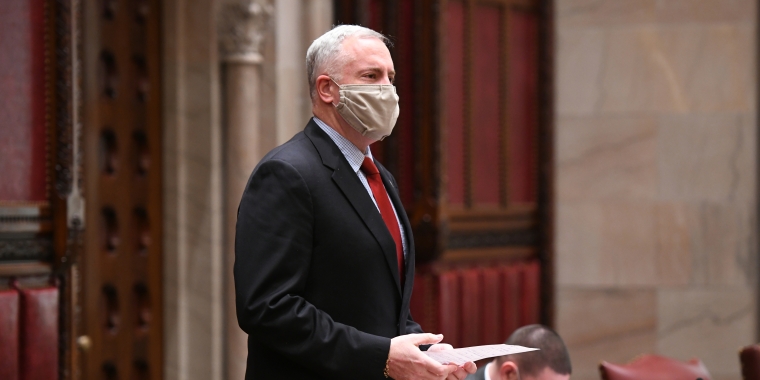
Stec opposes HALT legislation that would make prisons more dangerous
March 18, 2021

Senator Dan Stec today voted against the so-called ‘HALT’ legislation that would make significant changes to how state correctional facilities operate. The bill, which has passed both houses of the State Legislature, would provide a blanket prohibition against placing certain incarcerated individuals in a Special Housing Unit (SHU).
“My foremost concern is safety,” said Stec. “Not only for our correctional officers but also those incarcerated. While some will describe the SHU as punitive, the point is to separate from the population an individual who is a safety threat.
“The term ‘solitary confinement’ is sensational, politicized and misleading and does not accurately depict what a SHU is and the important purpose it serves,” said Stec. “Individuals assigned to a SHU have access to their personal property, the usual meals, earphones, radios and tablets, reading material, and legal and mental health counseling.”
Stec said concerns about the use of SHUs raised years ago have been addressed following the 2016 settlement of Peoples v. Annucci litigation, which made changes to how incarcerated individuals are managed within New York’s correctional system.
In December 2020, the Department of Corrections and Community Supervision (DOCCS) implemented numerous regulations further limiting the use of SHU. There is a system of due process, including the right to an evidentiary hearing, before an individual is assigned to a SHU.
The legislation would prohibit individuals 21 years of age or younger and those 55 years of age or older from ever serving time in segregated confinement, regardless of disciplinary infractions. It would also prohibit an incarcerated person from being placed in segregated confinement for more than 15 consecutive days.
It is undetermined when the bill will be sent to Governor Andrew Cuomo for his consideration. The New York State Correctional Officers and Police Benevolent Association (NYSCOPBA) and the Public Employees Federation (PEF) oppose the legislation.
-30-